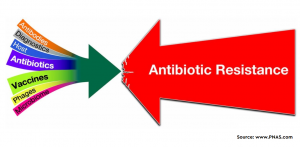Prior to the SARS-CoV-2 pandemic, antibiotic resistance was identified as a major global health care concern. Although fungal infections remain largely unknown to the general public, total attributable annual deaths are comparable to or exceed global mortalities from malaria, tuberculosis, or HIV. The impact of fungal infections has been exacerbated by the steady rise of antifungal drug resistant strains and species, which reflects the widespread use of antifungals for prophylaxis and therapy, and, in the case of Aspergillus, has been linked to widespread agricultural use of antifungals. The author’s research was, based on a workshop hosted by the Medical Research Council and the University of Exeter, sheds light on the problem of antifungal resistance and suggests ways to mitigate this growing threat.
The review shows that the impact of fungal disease has become an urgent health priority, exacerbated by drug-resistant infections, but innovation and progress have been hampered by capacity constraints in both the discovery and translational research sectors. Without increased visibility of mycology among all stakeholders, including funders, researchers, industry, patients, and the general public, it will be difficult to incentivize capacity development and catalyse interdisciplinary collaboration to encourage step changes in therapeutic and diagnostic opportunities for fungal infections. Improved diagnostics and a better understanding of the conditions and mechanisms that promote resistance and tolerance would clearly increase the value of the development of new broad-spectrum therapeutic options that are already in the pipeline.
Despite significant progress in these areas, the global burden of serious fungal infection remains high, and trends continue to rise. Investment is now required to reverse these trends and implement GAFFI125’s integrated One Health approach, which includes environmental, clinical, agricultural, and social perspectives. Without this investment, drug-resistant fungal infections will increasingly jeopardize successful treatment of mycotic disease.
To know more, please visit the website of Nature (Link).







